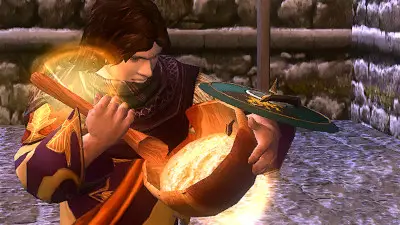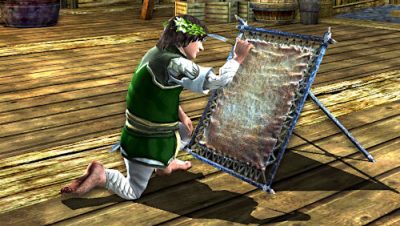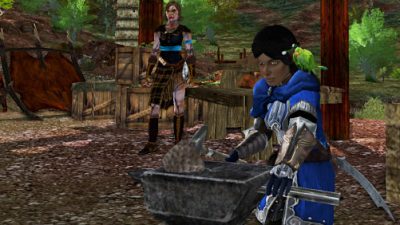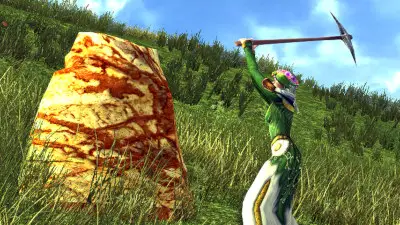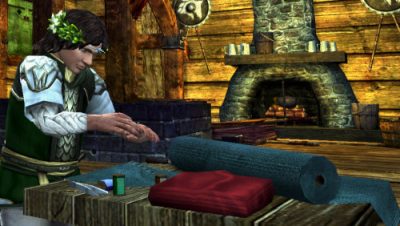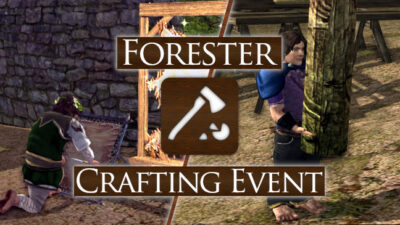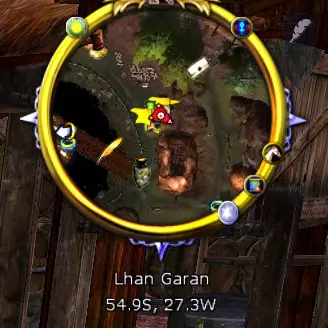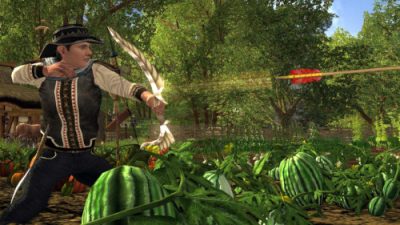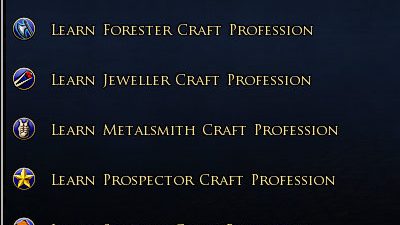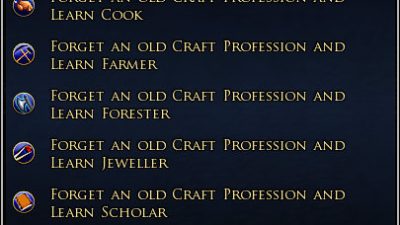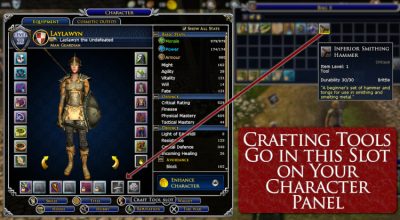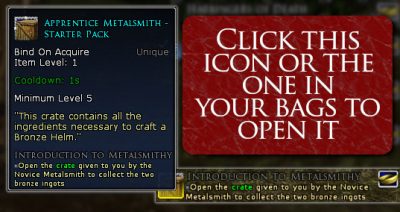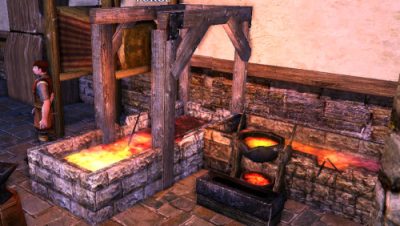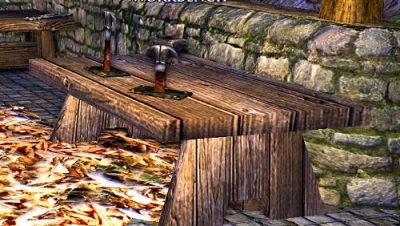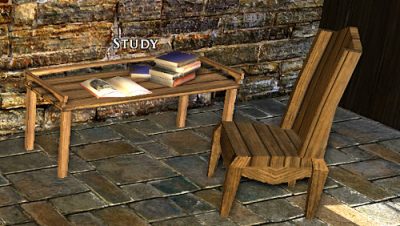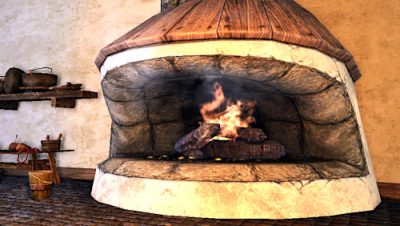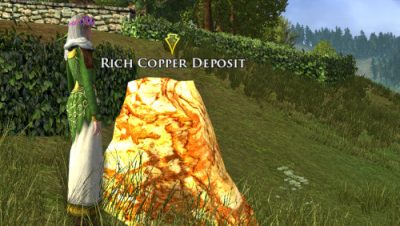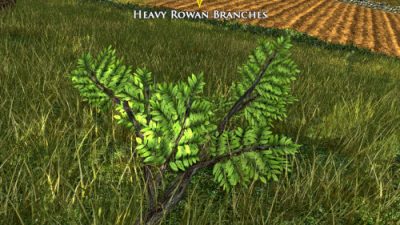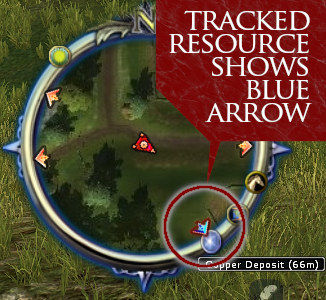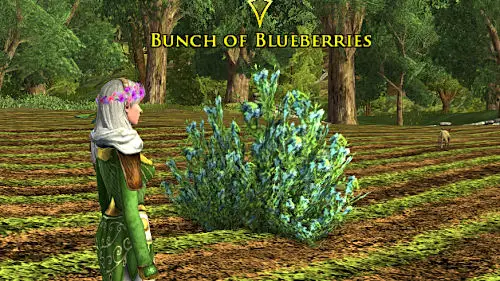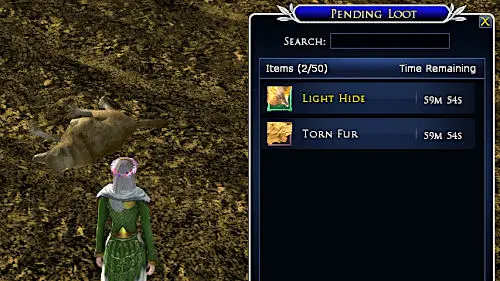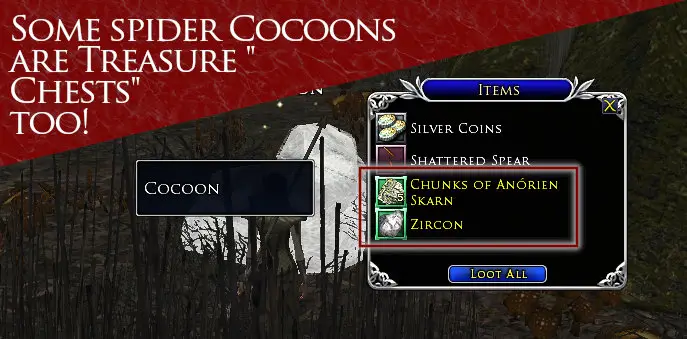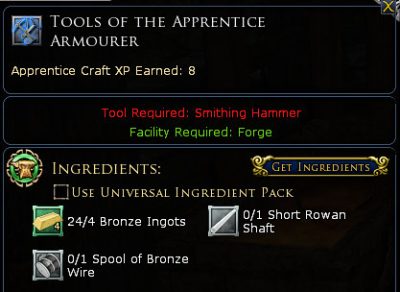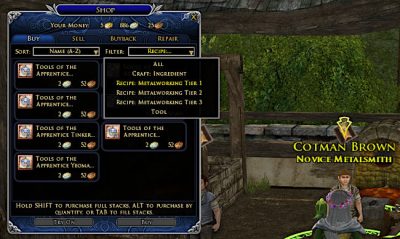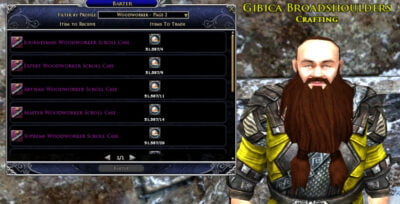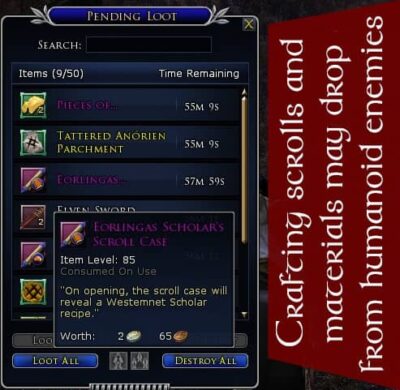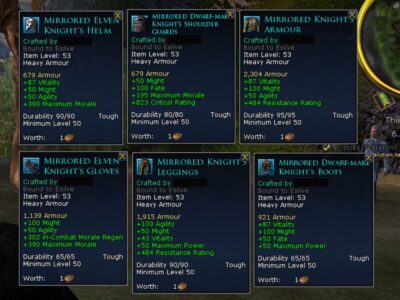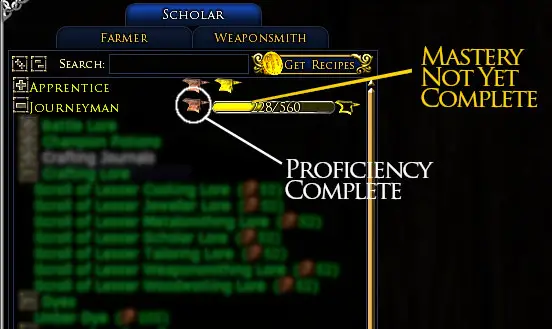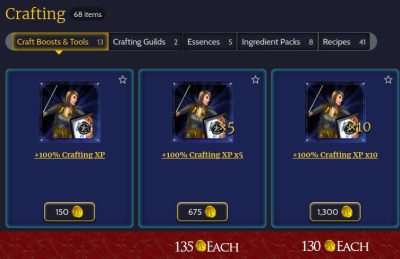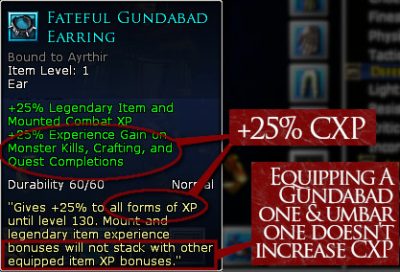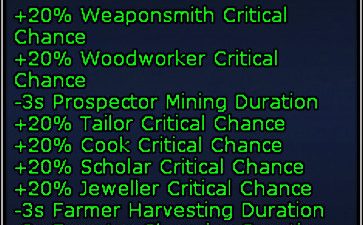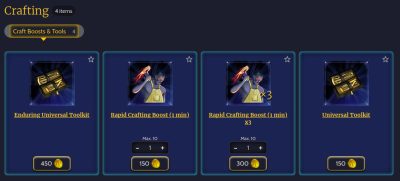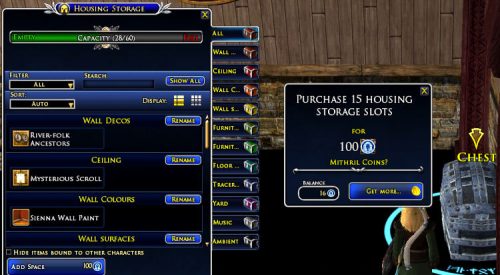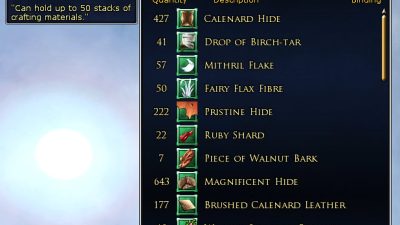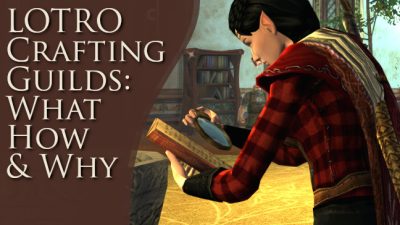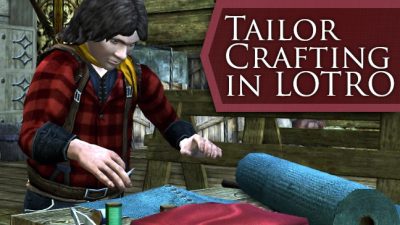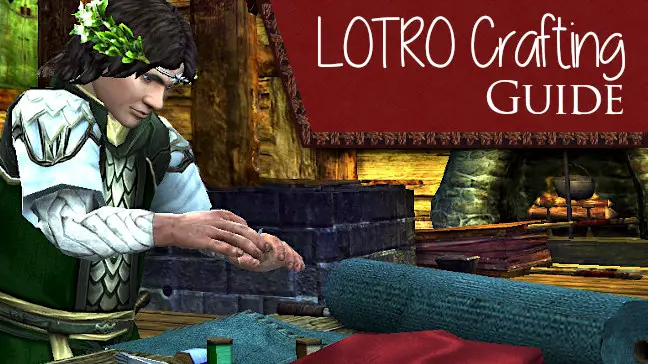
Post Sections ⇅
- What is Crafting?
- The LOTRO Crafting Changes in 2023
- LOTRO Crafting Professions
- What Were the Crafting Changes?
- How to Train LOTRO Crafting Professions
- Which Crafting Professions Should I Choose?
- Choosing Your Crafting Professions
- Tutorial Quests
- Crafting Facilities
- How to Get Crafting Materials
- Where to Get Crafting Recipes
- Levelling Crafting and Gathering
- How to Level Crafting XP Quicker
- Crafting Tools
- Managing Your Crafting Materials
- What are Crafting Guilds?
- Things Missing in the New System
Life in The Lord of the Rings Online does not simply limit you to questing. Gathering and crafting in LOTRO is a great way to change the pace for a while. Making items in-game can help you make your own weapons and armour, create cosmetic outfits, or to sell food and potions to other players.
A few changes the crafting system were brought in with the launch of the Corsairs of Umbar. So, I decided to completely rewrite this guide. Let’s get cracking.
What is Crafting?
The term crafting is the handmaking of items. This is true in the real world too. In LOTRO, it refers to any creating and gathering profession that your character takes on.
What Can Be Crafted?
Most things! As far as I know there is no craftable mount (not even a toy one like the Winter Hobby-Deer). But many other things can be, such as:
- Armour.
- Weapons.
- Jewellery and Pocket Items
- Modifications for Legendary Items (traceries) and other “slottable” gear (essences).
- Cosmetic Outfits.
- Reputation-granting consumables.
- Food and potions.
- Liquids to enhance Hunters’ arrows.
- Dyes.
- …even Talismans for Lore-masters that enable them to use rarer animals in combat.
Oh, and Hope Tokens. Yes, you can manufacture hope if you so wish!
The LOTRO Crafting Changes in 2023
In 2023, LOTRO made changes to the crafting system that gave players more flexibility in choosing how to set up their crafters. Long story short: the old crafting professions that grouped three different skills together have been removed.
This means you can (currently) choose three individual professions from all those available. For example, I have created a pure gatherer, made up of Forester, Prospector and Scholar.
LOTRO Crafting Professions
There are ten different skills/professions to train in. I have marked which ones are gathering skills to help you out:
Cook
Makes food that gives temporary stat increases to help you in combat or in other ways on your journeys.
And I learned today that they also make Lute Strings![]() for Minstrels!
for Minstrels!
Farmer (Gatherer)
Grows ingredients that can be used by cooks and scholars.
This skill also has a chance of producing rare component ingredients for those professions too.
Forester (Gatherer)
Cuts down trees, hangs around in Inns. Oh, they gather logs for Woodworkers and convert them to planks. The logs, not the woodworkers. Lastly, they turn hides into leathers used by Tailors.
Jeweller
Creates gear for your ear, necklace, bracelets and rings slots. They can also make other items such as Lore-master Talismans and Hope Tokens.
Metalsmith
Crafts heavy armour and shields for both Guardians and Wardens. They can also make certain crafting tools.
Prospector (Gatherer)
Gathers metal ores and turns them into ingots for Jewellers, Metalsmiths and Weaponsmiths.
They can also unearth uncut gems for Jewellers.
Scholar (gatherer and crafter)
Gathers ancient scrolls and parchments from ruins, to turn into items like battle scrolls.
They also use certain plants to create dyes used when creating outfits in LOTRO.
Tailor
Crafts Light and Medium Armour, Captain armaments to customise their combat companion.
Weaponsmith
Crafts metal weapons, mostly.
Woodworker
Creates various items from wood, including wooden weapons, Minstrel instruments and Warden items.
Weapons that are partly wood and partly metal (e.g. spears) are usually created by Woodworkers, not Weaponsmiths.
How Many Professions Can I Have?
Currently, you can only select three crafting professions per character.
There is the possibility of being able to unlock more via ![]() Mithril Coins, but I don’t think that’s a definite plan yet.
Mithril Coins, but I don’t think that’s a definite plan yet.
“Critical” Crafting Materials
There are special items that you can acquire while farming, cutting wood and digging up metal. These can be used later to increase the chance of crafting a better item. For example:
- Farmer: Spices and herbs for Cooks (list here
 )
) - Forester: Flaxes for Tailors
 , Resins for Woodworkers
, Resins for Woodworkers
- Prospector: Whetstones for Weaponsmiths (an example here
 ), Brimstones for Armourers
), Brimstones for Armourers , Rock-salts for Jewellers
, Rock-salts for Jewellers and some Dye ingredients for Scholars
and some Dye ingredients for Scholars
Universal Optional Ingredient
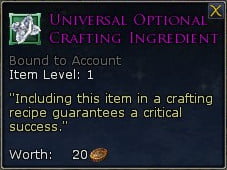
A ![]() Universal Optional Ingredient is an item that you can apply when making something that grants it a 100% critical success.
Universal Optional Ingredient is an item that you can apply when making something that grants it a 100% critical success.
You can obtain these by completing the Tasks at Hand![]() each week, for example.
each week, for example.
Crafting Events
As a new concept in 2023, LOTRO have introduced the idea of crafting events. While it’s not been made live again just yet, keep your eyes peeled for the periodical Combe Forester Event. Any of your characters who are trained in this crafting profession can take part.
What Were the Crafting Changes?
Before
Prior to The Corsairs of Umbar, crafting skills came in “groups” called professions. You had to choose a “group” and were given the related skills. The problem was that some professions had totally unrelated skills.
There were originally great reasons for doing this. I think it was Orion who mentioned “getting people to collaborate on crafting”. In reality, people just made more characters to fill the gaps.
After
You can now choose any three crafting skills from the available list.
The term Profession now relates to the specific crafting skill.
There was one other change: the new crafting tier coming with Umbar no longer requires you to complete all the previous tiers to proficiency.
How to Train LOTRO Crafting Professions
Starting to craft is as simple as speaking to the right NPC. There is then a tutorial per crafting profession which you can choose to do.
Master/Mistress of Apprentices
You can train for crafting by finding a Master- or Mistress of Apprentices. The first ones you encounter will depend on your starting region.
I don’t know why a female trainer cannot be a Master of Apprentices. Or, now I’ve started the thought, the other way around.
Bree-land (Human/Beorning)
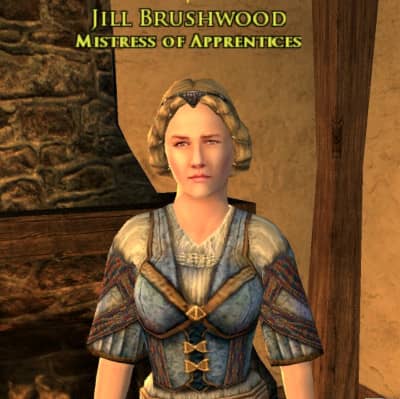
While there is one in Bree Crafting Hall, if you started in Archet, your first trainer is in Combe Crafting Hall.
Coordinates: 28.8S, 48.6W
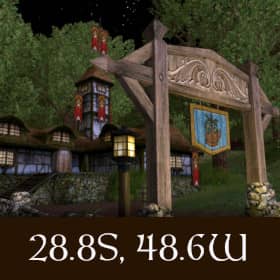
Ered Luin (Elf/High Elf)

Location: Celondim – up a lot of steps to the crafting terrace.
Coordinates: 28.2S, 92.7W
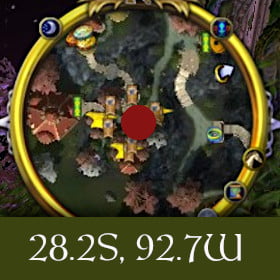
Ered Luin (Dwarf/Stout-Axe)

Location: Thorin’s Hall
Morór can be found as you head towards the forges. He wanders around, so look for the quest ring in your Minimap.
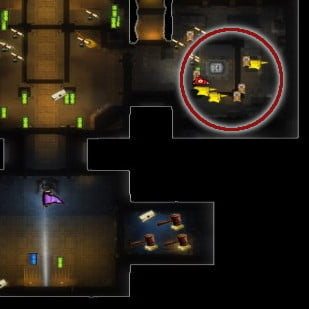
The Shire (Hobbit/River Hobbit)
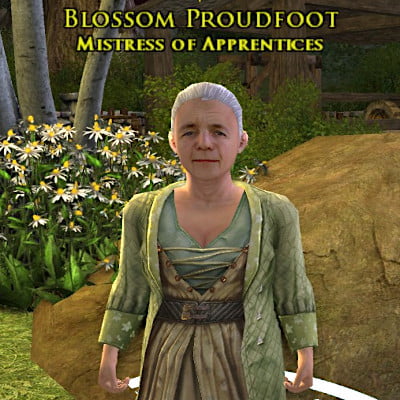
Coordinates: 34.6S, 75.5W
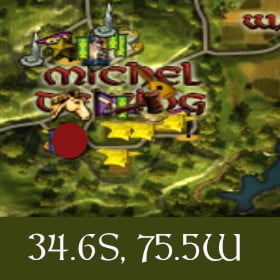
Swanfleet (Any)
You will find your first trainer in Lhan Garan, North-East of Mossward.
Incidentally, there is also a Fishing Hobby trainer there too.
It is Undeg you’re looking for. She is just off the main path into Lhan Garan.
Undeg is found at 54.9S 27.3W.
Just a heads-up: the crafting facilities are spread around the village. Some are up the hill behind Undeg. The workbenches are up that hill, turn right and follow the top of the hill.
Which Crafting Professions Should I Choose?
That depends! (Depends on what, Dex?).
It mostly depends on your reason for crafting.
- If you want to gear yourself.
- Whether you have other characters with some crafting skills already.
- Whether you’re looking to make money from your crafting.
Please don’t ask me about #3. I don’t make money in LOTRO beyond earning coin from quests and trash, and rarely spending it. From my understanding, the main ones for player-to-player trading are Scholar (for dyes and potions), Cook (for Foods) and potentially farmer (to sell to Cooks, I assume).
There are also periodic conversations in World Chat about how useful Gold (incl Silver and copper) actually is, given most things are reputation-gated, or crafted etc.
Community Guides
A basic search engine lookup (my primary one is DuckDuckGo
) will give you a raft of “advice”.
But remember, as with any market, some advice may be inaccurate now – especially those relating to the old Legendary Item system.
Gearing Yourself (Self-Suffiency)
If this is your first or second character, I normally go for self-sufficiency. This means making as many gear items as you can without requiring other characters, or players.
Here are some suggestions. Though I have not covered all classes, it’s because I’m no expert. But at least giving you something to get started with should be helpful, hopefully!
Guardian/Champion
- Prospector
- Metalsmith
- Weaponsmith or Jeweller*
* Adding Jeweller fills more gear slots.
Lore-master/Minstrel
- Forester
- Tailor
- Woodworker or Scholar *
Woodworker for staves, clubs and instruments. Scholar for stat-buffing consumables.
Hunter/Warden
- Forester
- Tailor
- Woodworker
Wardens can get shields from a metalsmith character.
Any
- Farmer and Cook (together)
- Jeweller and Prospector (together)
- Farmer and Scholar (together)
Choosing Your Crafting Professions
Once you have found your crafting NPC, training in your chosen profession is easy:
Select a Crafting Profession
(click/tap the thumbnail)
Speak to the Master/Mistress of Apprentices and choose an option from the list.
Repeat Two More Times
If you want to add other skills to your character you can. Just speak to the NPC again twice more.
Complete a Tutorial
While this is completely optional, if your character is in the L5-10 range you could come away with a free weapon or piece of armour. So it’s worth doing.
How to Change Your Profession
If you made a mistake when starting your LOTRO crafting journey, or your needs change even much later, you can change your profession.
Just speak to the Mistress/Master of Apprentices. You’ll see the dialog box has slightly changed this time. You need to choose which skill to drop in order to pick up a new one.
You will lose any progress made on the one being dropped. But you knew that already, yes?
(click/tap the thumbnail)
Tutorial Quests
Once you choose to train a crafting or gathering profession, you unlock a tutorial. You will also be given a free “inferior” crafting tool. I’ll help you out with tools a bit later.
Equip your tool to the crafting tool slot on the Character panel (Default: C).
Unless you acquire a 'Universal' toolkit, you will need to swap your equipped tool when changing the type of crafting or gathering you want to do.
How to do the Tutorial
To complete a tutorial, you need to fashion the exact item requested by the NPC. You will be given the materials you need for this task and get to keep the item afterwards. Here’s the process:
Equip the tool you were given.
Open the Ingredient Crate.
This can be done by left-clicking the crate picture in your quest tracker, or right clicking the crate in your inventory/bags.
Go to the Correct Facility
Different crafting skills need different places to make things! More accurately, different professions require different Crafting Facilities.
Every recipe will tell you which facility is required. If you’re not close enough to one, you won’t be able to make your item.
Find the Right Recipe
Open the Crafting Panel: Either by clicking the icon on the bottom bar, or whatever key you have bound to it in Options.
Find the Recipe: In this case it’s a Bronze Helm. You can use the drop-downs to find it manually, or use the search box to locate the recipe.
Make the Item
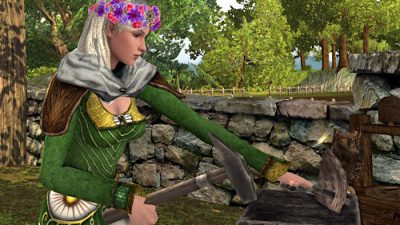
Press the “Make” button in the bottom right of the crafting panel.
Complete the Quest!
Once you have made the precise item required by the NPC, hand the quest in.
You get to keep the item too.
And this is roughly what you’ll do to craft other items in the future, presuming you have the necessary ingredients anyway!
Crafting Facilities
Different crafting professions use different facilities to make their wares. You need to be near the correct one to begin crafting:
Forge
- Metalsmiths
- Weaponsmiths
- Prospectors
Workbench
- Farmer
- Forester
- Jeweller
- Woodworker
- Tailor
Study
- Scholar
Farmland/Field
It’s … a field. Look for “farmland” on the map. They’re often pretty large and usually empty.
- Farmer
Oven
- Cook
Finding Crafting Facilities
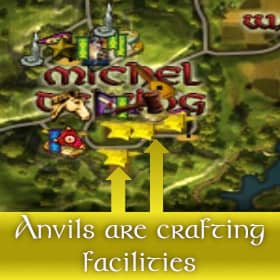
Many villages and camps have facilities for you to make and create. But not all locations provide them for all handicrafts.
Use the map (and minimap) and find golden anvils to find the nearest one to you. Or, what I sometimes to, find one where there aren’t many other players around!
What is a Superior Workbench, Forge, Study, Farmland etc?
You’re probably asking due to spotting the buff you get when you’re near a “superior” crafting facility.
This is simply remnant from an old system where recipes over a certain level had to be crafted at “superior” facilities. But years ago, instead of trying to detangle this mechanic from the whole system, LOTRO just made all facilities “superior”.
In short, you can safely disregard this!
Craft At Home!
The LOTRO Store contains a number of individual items and packs containing crafting facility decorations you can use in your homestead.
Per Déco du Milieu![]() , the Corsairs of Umbar decorations are available from Reputation Vendors. The Rohirric and Gondorian ones are exclusive to the LOTRO Store.
, the Corsairs of Umbar decorations are available from Reputation Vendors. The Rohirric and Gondorian ones are exclusive to the LOTRO Store.
Naturally, they cost ![]() LOTRO Points, but that’s the price of convenience.
LOTRO Points, but that’s the price of convenience.
Research in the Field!
Scholars can create various items in the field without visitng a study. Just make sure you have a toolkit or a Scholar’s Glass with you before you head out.
Though, this does make me wish Foresters could make planks in the field in the very least!
How to Get Crafting Materials
Getting crafting materials is known as Gathering.
Well, it is for those you actually gather for. If you’re “gathering” animals hides, you may also be clearing a deed!
So let’s break it down into the type of material.
Wood, Metal and Scholar Materials
If you need wood for planks or metal for ingots, you will be gathering from “nodes” across Middle-Earth.
What’s nodes, precious? A node is a fancy word to mean an object on the landscape you can “use” to get crafting materials. Once you have collected what’s in that node, it will vanish. Nodes are replenished over time.
Metals
A Prospecting node appears as a lump of coloured stone, or even metal, sticking out of the ground.
Wood
A Forester node takes the form of fallen branches. We do not chop actual trees down in Middle Earth. That’s the kind of thing Saruman does, we only take what is freely given.
Artifacts
These actually take a lot of different forms. Make sure you use Track Artifacts. Their appearance is not as in-your-face obvious as a giant, coloured rock!
Heavy and Rich Nodes
From time-to-time, you’ll come across a Heavy..Branch or a Rich…Ore Deposit.
These usually contain more materials than a regular node. I want to say there’s a greater % chance of rarer items also to come from them, but the difference is so marginal I’ve not noticed.
Heavy/Rich nodes don’t look any different to regular ones, either. So check the tooltip in your minimap, or put floaty names on (Default: N) to highlight them to yourself.
How to Gather from a Node
- Make sure you have equipped the correct tool.
- Right click the node.
- Wait for the digging, chopping or studying to finish. Gather the materials.
Note: You can gather on foot, or while riding a mount.
Tracking Skills
There are specialist tracking skills you can activate to help you find materials. But you may have to do some running/walking around before it kicks in.
When you are near a node, a blue arrow appears on your minimap. This tells you in which direction the nearest node is and how far away it is too.
The tracking skills are:
Track Artifacts (Scholar)
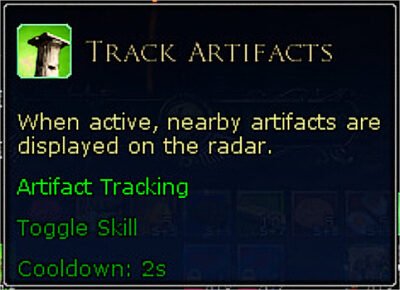
Commonly in ruins, buildings and tombs, artifacts relate to Scholar crafting.
Track Crops (Farmer)
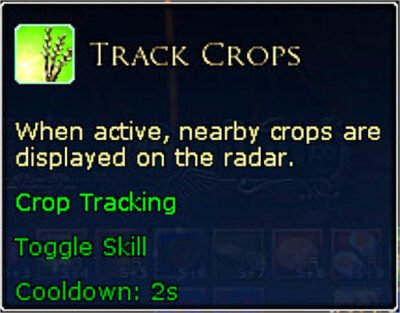
While most of a cook’s materials will come from Farming, you can find various ingredients in the wild. Some plants used for dying can be found in the open world.
Track Mines (Prospector)
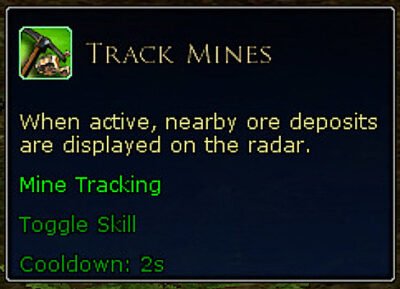
Not actual mines. It tracks sources of metal ores, which can also contain special ingredients or jeweller’s uncut gems.
Track Wood (Forester)
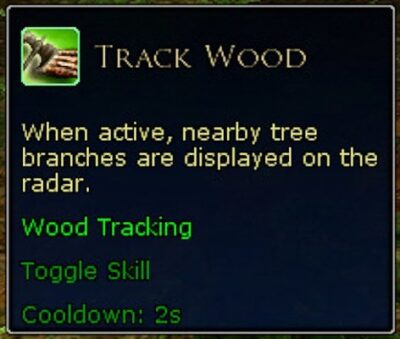
Stealthily tracks those unmoving trees. We don’t talk about Huorns, nor nor nor. Doesn’t have the same ring to it, does it?
Items Found in the Wild
You can find all sorts of random plants that you can be pick. Some of these may be plants that can be used by scholars or cooks.
Hides for Leathers
Apart from buying them from other players, enemies are the only place you will be able to gather hides from. And no, you may not get hides from goblins or Orcs. Yes, there is an NPC here or there that does make items from “Orc-hide”, but not you!
Wolves, Wargs and Barghests are common sources of hides in the earlier regions. And the later ones too, to be honest!
Many regions have both nodes and hides which overlap crafting tiers. And, if you collect too many hides, or make too many leathers, you can try and sell some off at the Auction House.
Materials as Loot
Sometimes, you can get other crafting materials from loot:
- Humanoids can sometimes be carrying crafting materials. Ore and gems – and bizarrely, logs. So check your pending loot to see if the last brigand you knocked down was carrying some logs in its pocketses!
- Loot-chests/Wooden chests on the landscape often include crafting materials. So long as you’re not taking from a player nearby, grab the contents for yourself. These are usually found in enemy camps or ruins.
In spider-infested areas, you may find Cocoons. These are 'spider treasure chests' so can be looted in the same way!
From the Supplier
In many recipes, you will need to buy some ingredients and components from a Supplier NPC. It helps support the local economy and small traders, that kind of thing. Take this recipe for an Apprentice “Multi-tool”:
- Bronze Ingots: Copper (gathered in the wild) and Tin (from the Supplier)
- Short Rowan Shaft (Supplier)
- Spool of Bronze Wire (Supplier)
This is why there are NPC vendors near most crafting facilities. It also means you don’t need to carry around vendor-bought items.
Fishing
I almost forgot! Some cooking recipes involve fish. To get fish you need to have the fishing hobby. The horror!
Be aware that different fish come from different bodies of water. So check the Wiki’s list![]() of fish. or ask in World Chat if you need advice. Just don’t ask me, because I usually only fish during Farmers Faire – then forget about it!
of fish. or ask in World Chat if you need advice. Just don’t ask me, because I usually only fish during Farmers Faire – then forget about it!
Where to Get Crafting Recipes
Recipes come in two forms: the actual recipe and a scroll case.
Scroll cases grant one recipe from the tier mentioned in the scroll case’s name. It’s random, though. So, if you’re hoping for a specific recipe, you may need to acquire multiple scroll cases.
There is a wide variety of places you can obtain recipes from and this list is probably not exhaustive!
Auto-Granted
When you unlock a new level of crafting, a certain number of recipes are automatically given to you. In later levels, this number gradually declines.
Vendor NPCs
Novice and Expert NPCs in crafting areas often have recipes for sale. These usually only cost a small amount of ![]() silver.
silver.
Skirmish Camps
Once you have earned ![]() Marks, through Skirmishes or LOTRO Deeds, you can exchange them for crafting recipes.
Marks, through Skirmishes or LOTRO Deeds, you can exchange them for crafting recipes.
Well, scrolls. But if you have no real use for your marks, then it’s a cheap way of burning through scroll cases to find the one recipe you actually want.
Reputation Vendors
Many reputation vendor have recipes for sale. Often, you will need to be a certain level of approval to unlock that part of the shop, though.
These will be actual recipes, rather than cases.
Take a look at my Reputation Levelling Guide for tips.
Loot
Scroll cases can drop as loot and be found in landscape treasure boxes (or cocoons!).
Repeatable Quests
In some earlier regions you can find repeatable quests that grant a choice from a range of scroll cases. If memory serves, they may only be repeatable for a set number of times.
Here are the lists of where the quests can be found. It only has one profession, but usually others are selectable regwards.
- Journeyman Crafting: Bree-land Repeatables

- Expert Crafting: Lone-lands repeatables
 .
.
Crafting Guild
If you are part of a crafting guild, then you can acquire specialist recipes for very strong armour and weapons.
Auction House
For non-bound recipes, you can check the Auction House. You may find scroll cases there too. Be sure to look up the Wiki![]() where to get crafting recipes from first.
where to get crafting recipes from first.
There’s no need to spend ![]() gold, if a recipe could be easily acquired another way, after all!
gold, if a recipe could be easily acquired another way, after all!
Levelling Crafting and Gathering
The levelling system for LOTRO crafting is separate to that of your character’s level. The only overlap is that you get a little (normal) XP for making items. The important figure is getting ![]() Crafting XP (or CXP as I’m now going to call it to reduce over-using the C-word).
Crafting XP (or CXP as I’m now going to call it to reduce over-using the C-word).
Crafting and Gathering Tiers
Tiers are like levels but in the crafting context. Each tier requires a certain amount of XP to level up. And that XP increases with each tier. The items you can make in a tier are better than the ones in the previous tier.
Gathering
All professions are “crafting professions” even gathering ones like Forester and Prospector. Therefore Crafting XP is only granted to these professions for crafting, not gathering.
You will get a small amount of regular XP for each node you gather from. But it is the work at crafting facilities that gives you CXP.
Crafting
Every board cut, ingot smelted, thread pulled, hide tanned, ingredient prepared grants CXP.
What is Proficiency?
You are proficient in any given tier when you earn enough CXP to fill the brown/copper bar.
Once you are proficient, you can “crit” an item. Short for “critical”, “critting” an item means producing a better version of whatever you’re making. Or, in terms of Prospector and Forester, a higher number of planks or ingots.
What is Crafting Mastery?
If filling the brown bar means you are “proficient”, filling the gold bar means you have “mastery” of that crafting tier.
You cannot work towards Mastery of a higher tier, until you have completed mastery of the tier below it. The exception is the new Umbar tier which allows you to start from that tier without completing the others before it.
How to Level Crafting XP Quicker
While “there is no need to rush” sums up my approach to LOTRO, sometimes you just need to clear stuff to progress. There are some ways to improve your CXP.
(Re)Processing
In some crafting professions, there is a random option for reprocessing materials. This involves – say – grinding an ingot show to shavings, then remelting them together to make an ingot. For example:
Materials are lost through this process, but it is still effective.
Scrolls/Consumables
There are consumable items that boost your ![]() Craft XP, such as the +100% Craft XP Boost
Craft XP, such as the +100% Craft XP Boost![]() (snazzy name, that). Most only last a minute or two, so make sure you can focus to maximise their usage!
(snazzy name, that). Most only last a minute or two, so make sure you can focus to maximise their usage!
You can also get these from the in-game Store for ![]() LOTRO Points.
LOTRO Points.
Expansion Items
Some expansions include XP-boosting items. This was true of the Corsairs of Umbar Ultimate Fan Bundle, and the equivalent Gundabad one.
Just be aware that equipping two such earrings will not magically give you a +50% CXP boost.
CXP “Events”
Periodically in the LOTRO Events Schedule there are boosts to ![]() CXP.
CXP.
If you need to unlock the next tier, these “events” are great for you to take advantage of.
Do More Crafting!
By the time you’ve looked into improving your crafting levelling, you could have been…crafting! So, go gather and then make stuff.
But you’ll also see that some recipes give more CXP than others. So you could focus on doing those as you master each tier.
Crafting Tools
As we’ve seen, crafting involves having the right tool equipped at the right time. And there are various places to obtain new and better tools from, also.
So, after the pretty-naff beginner’s tools where can you get better ones?
NPCs
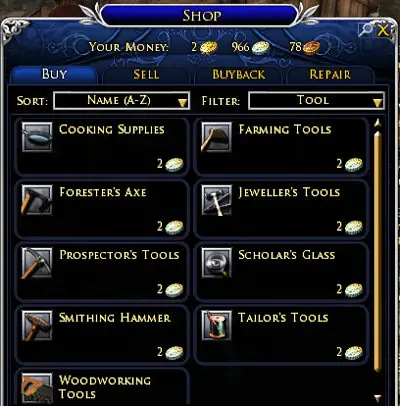
At “Novice” vendors, you can pick up more durable tools. That means they last longer before they have to be repaired at an NPC vendor.
They don’t have any other stats improvements, but if you’re not VIP and durability does matter, then pick up those tools and throw away the old one!
Crafting
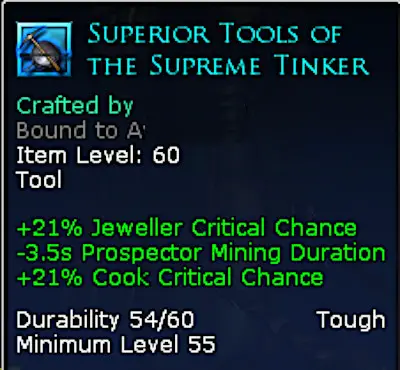
Metalsmiths can craft “multitools”. As of right now, these still bear the names of the old professions. This means you need to look at the tooltip to see what the tool does to figure out the relevant professions.
“Multitools” replace at least two tools in your bags, meaning you can save space to fill with other junk. Hurrah!
Crafted tools are very durable and often decrease related gathering times.
Forester Event
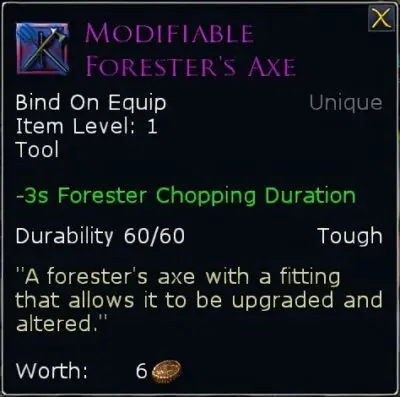
The Combe Forester Event introduced a brand-new type of tool: a customisable one. While it is only a Forester Tool for now, you can play the event to improve its stats and change its appearance.
LOTRO Store
Lastly, you can obtain two different types of multitools from the LOTRO Store:
Fishing Rods
Fishing Rods come from various places! Some are craftable, others are from NPCs or through reputation. Here’s the Wiki’s list![]() .
.
Managing Your Crafting Materials
Even with one character, you could be collecting a wide variety of crafting materials. And, if you decide to get a dedicated gatherer – a feasible option from the launch of the Corsairs of Umbar expansion – your bags will soon fill up.
Here are some possible solutions, where I am assuming two or more characters are sharing materials:
Shared Storage
Pro: No need to transfer the materials between characters.
Con: Can only be acquired and extended through LOTRO Points.
Also, non-VIPs can only visit the Vault-keeper in towns or some camps. While that’s fine for crafting, it’s not so great if you want to dump shedloads of crafting materials after an hour of gathering.
Housing Storage
Pro
- No need to transfer the materials between characters.
- Some slots can be added for gold and silver.
Con:
- Extra slots must be added using Mithril Coins
- You have to go to your house to pick materials up.
Thankfully, housing neighbourhoods have crafting facilities too.
Carry-alls
Pro:
- Portable, account-bound and can be mailed.
- Can hold huge stacks of items.
- Gathering can be set to auto-gather into the carry-all.
- You can craft straight from the carry-all.
Con:
- Once you own a few, it gets confusing which bag contains which resource.
- Small carry-alls are far too expensive per slot.
- Large ones have a low LP/Slot cost but require a large LP expense.
If You Only Have 1 Character
If you have one or two, then you can keep the materials relevant for that character in their own storage:
- Bags/Inventory
Keep one bag “window” for crafting materials.  Vault
Vault
Put your materials in here. Then, when you want to do actual crafting, retrieve them and do your creative making in the same town. Return unused materials before heading out for questing again.
What are Crafting Guilds?
Crafting guilds in LOTRO are specialist NPC groups that offer trickier crafting recipes that produce far better items. Each crafting profession has one – however Forester and Prospector do not.
They are organised as reputation factions too, with better recipes being offered the higher standing you have with the guild.
If you’ve come from an MMO where “guild” meant “a semi-organised group of players” then the term may confuse you. It did exactly that when I was new to LOTRO!
Do I Need to Join One?
For most players, I would say, you don’t need to. However:
- There are some unique cosmetic appearances in guild recipes.
- The gear recipes are so strong you shouldn’t need to replace them more than once every ten levels.
- It’s another source of CXP.
For more information see my detailed guide below:
Things Missing in the New System
Since running a new character through the crafting introduction, I’ve noticed a couple of things that have been silently dropped:
- Practice Makes Perfect
You used to get a quest called “Practice Makes Perfect” once you had completed three tutorials. This quest granted a few Universal Ingredient Packs, but appears to have been left out of the new system at the moment. - Crafting Titles:
Each “group” of professions had its own title such as “Handyman”, which again was awarded after completing three related skills. So far, I haven’t seen titles returned in new characters completing the tutorials.
TL;DR Get Stuck into LOTRO Crafting and Enjoy the New System!
Removing the groups of professions was a long-overdue improvement. It likely took a lot more work than it sounds, too! Crafting is both great for gearing and relaxing to do. And because normal XP is granted for making things, it’s not a complete “Actual XP vs Craft XP” choice.
So go ahead, crafter – be creative, help other players too. Have fun in Middle-Earth, and play in a way that helps others do the same!
Don't forget there are some crafting plugins available on LOTROinterface. However, as far as I know, plugins still cannot see or read the contents of carry-alls
